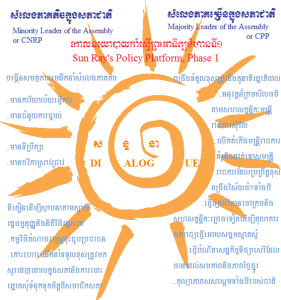Great Political Leaders
Great political leaders have all of these qualities – and more. Each aspires to respect different views, analyze problems, and identify the best solutions – not based on loyalty to political party, but rather based on what is good and right and in the best interest of the nation as a whole.
Top 5 Qualities of Good Political Leaders

Deciding which candidate to vote into office is simply a matter of party affiliation for many people. Others, however, cast their votes based on specific characteristics they look for in their candidate of choice. So what are the qualities or characteristics good political leaders should possess? Here are the top 5 characteristics of some of the world’s most successful political leaders.
Honesty
Being honest can sometimes be difficult because it makes individuals vulnerable. It reveals who we really are and discloses our mistakes, which gives others the opportunity to criticize or reject openly. Honesty develops character and builds credibility and trust, which are the foundation to evoke confidence and respect from those around you, and in the case of political leaders, teammates and constituents.
Compassion
Compassion is the humane quality of understanding the suffering of others and wanting to do something to alleviate that suffering. While many see compassion as a weakness, true compassion is a characteristic that converts knowledge to wisdom. Good political leaders use compassion to see the needs of those he or she leads and to determine the course of action that would be of greatest benefit to all those involved.
Integrity
The word integrity is defined as ‘the adherence to moral and ethical principles; the soundness of moral character.’ It is a synonym for honesty and uprightness, and is a vital characteristic for those in political leadership. Political leaders who possess integrity can be trusted because he or she never veers from inner values, even when it might benefit them to do so. A leader must have the trust of followers. This requires the highest standard of integrity.
Confidence
Having confidence in a political leader is about having faith or belief that he or she will act in a right, proper, or effective way. A good political leader needs to be both confident in himself or herself as well in their ability to lead. Leaders who possess this quality inspire others, drawing on a level of trust which sparks the motivation to get others on board and get the job done.
Flexibility
Flexibility for a political leader is about understanding the give-and-take aspects of politics, and the ability to find the common ground. Good politicians listen carefully to all sides, to not only hear their arguments but to especially learn what it will take on behalf of all parties involved to reach a consensus. This characteristic allows political leaders to recognize setbacks and criticism, to learn from them and move forward.




